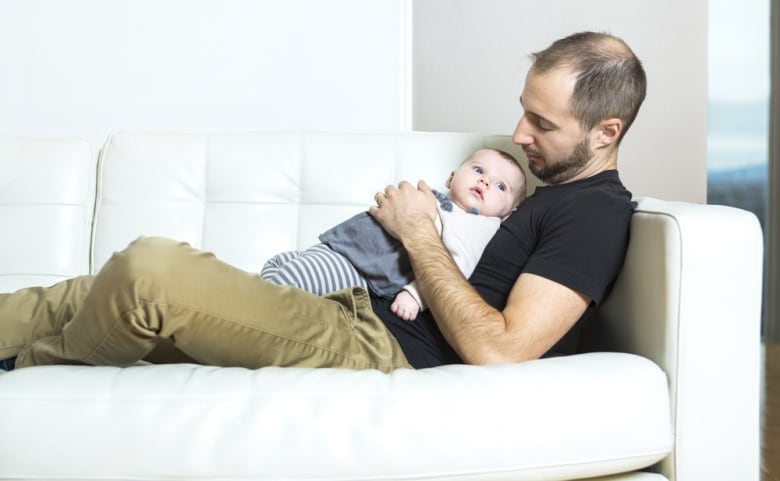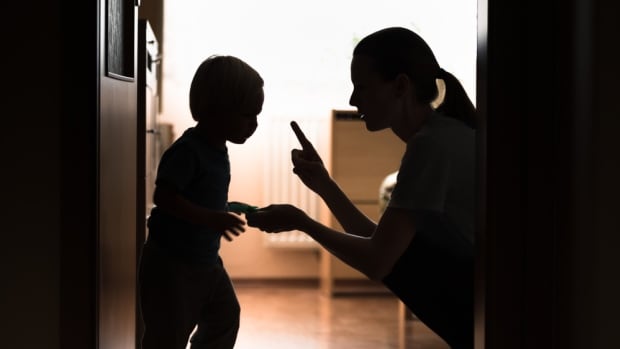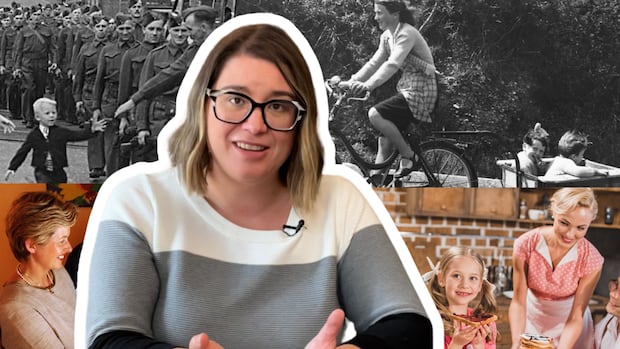If you’ve ever laid awake at night worrying about whether you were unkind as your soul left your body when your kid rolled over 45 minutes past bedtime and asked you his 27th rapid-fire question in a row (“Why is pee hot?” followed swiftly by No. 28: “When will you die? No, like how many years exactly?”).
If you’ve tossed and turned in the wee hours, wondering if you remembered to set a 4 a.m. alarm to fight every other parent in the city for a coveted swimming lesson spot (like The Hunger Games, but perhaps more violent).
And if you’ve slammed your face into your pillow, torturing yourself about whether your child formed a core memory of that time they fell off the monkey bars while you were watching reels of Dancing with the Stars on your phone (he was fine … right? Should we Google “delayed signs of internal bleeding” just to be safe?).
You’re not alone in worrying that you’ve caused them irreparable damage. You’re not even unique. You’re just a modern parent.
Last weekend, in response to recent CBC News stories on the stresses of modern parenting, Cross Country Checkup asked parents to describe the issues that are causing the most stress in their families. The radio program heard from parents across Canada who described generational differences in parenting styles, the division of labour and isolation — just to name a few.
Cross Country Checkup1:52:16Which parenting issue is causing the most stress in your family?
For many of us, the most important role we’ll ever have is “parent”. It’s also one of the most challenging. So it’s no surprise the US Surgeon General recently issued a warning about the potential toll of parenting on mental health. Which parenting issue is causing the most stress in your family? How did the way you were parented affect the way you parent today?
“I was raised in the ’80s and ’90s, and her, she was the late ’90s to 2000s, and even just that gap alone, you’re starting to see how differently they approach things,” Albert Jame said about the disagreements he has with his wife about parenting.
“Growing up, I truly don’t know if I ever saw a car seat in my home,” said Jame, who lives in Saskatoon and has a three-year-old child and another baby on the way.
While some parents on the program spoke about broader issues, like the pressure of breaking generational cycles and teaching kids to regulate their emotions, others were more specific about what caused them the most stress.
“How to handle fussy eaters,” said Melanie Reaveley of Cowichan Valley, B.C., explaining that by the time she and her partner had their second child, they no longer had the energy for food battles and gave in. “He’s almost 17 now and guess what? Still a fussy eater. We still worry about this parenting issue.”
A new U.K. study suggests genetics largely account for individual differences in picky eating at all ages — and parenting is not to blame. Canada Tonight’s medical contributor Dr. Samir Gupta breaks down the findings.
Parenting really has changed
The recognition that having children is increasingly costly, time-consuming and stressful was reflected in a recent public health advisory issued by the U.S. surgeon general.
In August, Dr. Vivek Murthy warned about the impact of modern stresses on parents’ mental health, saying today’s parents face unique challenges, such as the rising cost of living, social media and the youth mental health crisis.
On top of that, some experts have argued that parenting has become more intense. Data shows parents today spend more time with their children than in previous generations (even while more women are working full time) and that the predominant modern parenting style centres on acknowledging a child’s feelings — which has left many parents feeling burned out.
“We have changed our perspective about parenting,” said Alyson Schafer, a family counsellor in Kingston, Ont., parenting expert and author of Ain’t Misbehavin’, Honey I Wrecked the Kids and Breaking the Good Mom Myth.
It might be hard to believe, Schafer said on Cross Country Checkup, but 100 years ago, we didn’t even think parenting mattered. There’s a pervasive cultural idea today that parents should be striving to keep their children happy all of the time that’s very different from previous generations, other experts have noted.
For instance, parenting manuals themselves were few and far between before the 1970s, when they proliferated, according to the New York Times.
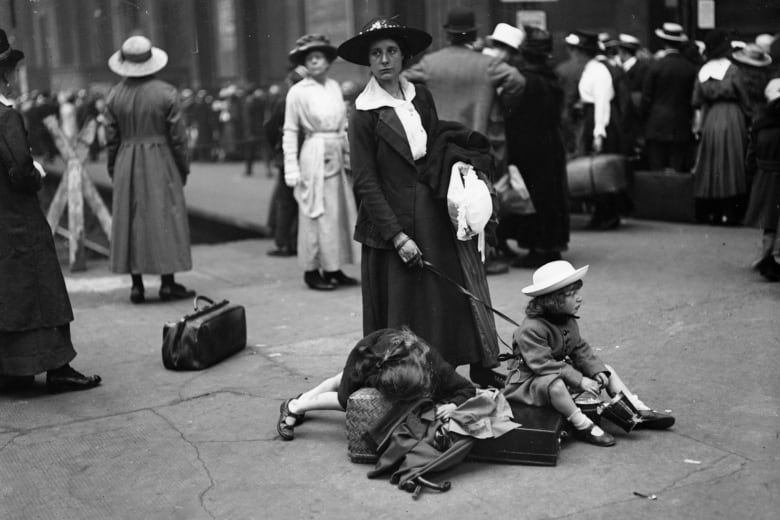
“Parenting” itself wasn’t even commonly used as a verb until then, author Andrew Bomback said in his book Long Days, Short Years: A Cultural History of Modern Parenting. That’s when parenthood transformed “from someone to be into something to do,” he wrote.
Currently, “we really live in a very fearful time,” Schafer said. “We think our children are very fragile, and we’re told that we need to worry about everything — about every piece of nutrition, that the car seat actually has to be at a certain angle,” she said.
“The level of specificity, the number of things that parents have to pay attention to, has become overly inflated.”
Where’s the supposed village?
Genevieve Gee of Vaughan, Ont., said she tries not to stress as she raises her four children, knowing that the difficult moments won’t last forever. But she also acknowledged that wouldn’t be possible if she hadn’t chosen to live in a community where she knew she would have support.
“I think that’s something that a lot of families are missing. My parents just live around the corner, I have a great network of friends … we have a great community centre that’s walking distance from our house, we’re on a public transit line,” Gee said.
“But that’s kind of what it takes … and if we didn’t have that, I don’t know that we would have made the choices that we did to have a big family.”
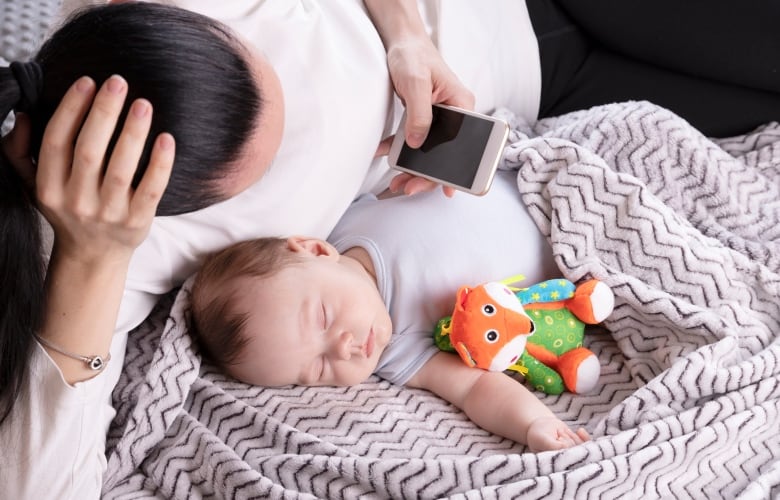
Most parents today tend to find themselves increasingly isolated and lonely, noted the U.S. surgeon general’s report, citing 2021 research in which about 65 per cent of parents and guardians experienced loneliness, compared with 55 per cent of non-parents.
Yet according to 2023 research on hunter-gatherer societies published in the journal Developmental Psychology, children may be psychologically wired to thrive with high levels of contact and care from multiple people — the supposed “village” it takes to raise a child.
Lead author Nikhil Chaudhary, an evolutionary anthropologist at the University of Cambridge in England, pointed out in a news release last year that “for the vast majority of our species’ evolutionary history, mothers probably had far more support than they currently do in Western countries.”
“Children may be evolutionarily primed to expect exceptionally high levels of physical contact and care, swift soothing responses to their crying, and personal attention from several caregivers beyond their biological parents,” the authors wrote in the research paper.
A public health advisory says today’s parents face unique challenges that can impact their mental health. Some parents from older generations say raising children has always been, and always will be, a struggle. Can we really say which generation has had it the worst?
Division of labour
But as Winnipeg mom Jocelyn Lalond pointed out, there’s still an expectation that the bulk of parenting and managing a household comes down to one person, and that’s typically the mother.
“If we operate from that default, we’re just on a speeding train for burnout,” she said.
While fathers may be handling more household responsibilities now than they have in the past, researchers have noted that often those responsibilities take on a predictable pattern of fathers spending more time with their children, while mothers handle more of the cleaning and scheduling.
Women still consistently take on a larger share of unpaid household work, including chores and child care, according to a 2022 Statistics Canada report.
Lalond said many women work full-time hours outside the home but are still responsible for communications with the schools, knowing what sizes their children wear, cultivating relationships with other parents in the neighbourhood and research on everything from car seats and the best diaper brands to bedtime routines — all that invisible labour you might not otherwise see.
She took on the bulk of that labour with her first child, until something had to give. The catalyst for change? “Twins,” Lalond said with a laugh. “Three kids under three, and it was like no way, this cannot continue the way it is going or I’m going to crash and burn.”
